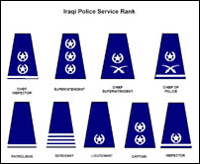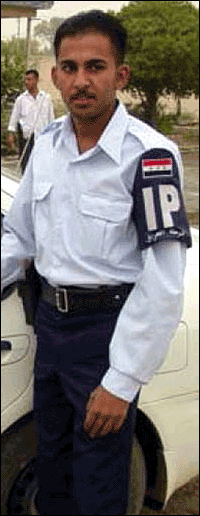Iraqi Police Services, Transition Integration Program (TIP)
The Coalition Provisional Authority did not establish a basic recruit training program for new Iraqi police officers until the end of 2003.
In the interim, U.S. police advisers developed a three-week reorientation course, the Transition and Integration Program (TIP), for rehired members of the Iraqi National Police. With U.S. Military Police serving as instructors, some 40,000 members of the IPS received training in weapons handling and the use of force in making arrests, and instruction on human rights, ethics, and law.
The study and training plan was structured on “The nine principles of policing by Sir Robert Peel, the founder of modern policing.”
They were first enunciated by Sir Robert Peel in England in 1822 when he was working toward the establishment of the London Metropolitan Police, which claims to be the first organized paid police force in the English-speaking world.”
The nine principles of policing by Sir Robert Peel
1. The basic mission for which the police exist is to prevent crime and disorder.
2.The ability of the police to perform their duties is dependent upon public approval of police actions.
3. Police must secure the willing co-operation of the public in voluntary observance of the law to be able to secure and maintain the respect of the public.
4. The degree of co-operation of the public that can be secured diminishes proportionately to the necessity of the use of physical force.
5. Police seek and preserve public favor not by catering to public opinion but by constantly demonstrating absolute impartial service to the law.
6. Police use physical force to the extent necessary to secure observance of the law or to restore order only when the exercise of persuasion, advice and warning is found to be insufficient.
7. Police, at all times, should maintain a relationship with the public that gives reality to the historic tradition that the police are the public and the public are the police; the police being only members of the public who are paid to give full-time attention to duties which are incumbent on every citizen in the interests of community welfare and existence
8. Police should always direct their action strictly towards their functions and never appear to usurp the powers of the judiciary.
9. The test of police efficiency is the absence of crime and disorder, not the visible evidence of police action in dealing with it.

